#to an extent lol
Text
dave who learned imitation as a survival method....... dave getting into turntables and music mixing bc thats the one thing he can do with his bro without getting stressed out, getting into swords and ‘cool guy’ things bc when he acts like his bro and impresses him he gets hurt less, learning to act dry and emotionally disconnected from john bc john is well liked among his friends (and he likes john, too), learning to psychoanalyze by imitating rose because rose will back off if he manages to pick at one of HER sore spots for once....... dave realizing he doesnt want to be that person anymore on the meteor but not having any other method of becoming well-liked. dave imitating romcom protagonists to get karkat’s attention, becoming more and more grumpy and animated and dramatic bc of all the time he’s spent around karkat, dave’s dry humor getting more and more developed as he spends more time with rose and kanaya. dave who has a crisis (at least in another timeline) because at age sixteen he’s standing in his childhood bedroom and surrounded by interests he hasn’t pursued in years and sobbing because he doesn’t know who he is without trying to make someone like him. he doesn’t know which interests, if any, were ones he would have had if he’d grown up with a guardian that didn’t hate him, if the world hadn’t ended and if he wasn’t one of the sole survivors dedicating his childhood to creating a new universe, if he’d just been a normal kid.
dave, age sixteen, who has no idea who he is or what he wants from life.
(https://www.homestuck.com/story/6306)
#it me#homestuck#dave strider#davekat#to an extent lol#that page--and like four or five following it--make me ugly cry ngl#its like. sixteen year olds have this whole thing about not knowing who they are or what they wanna do ANYWAY#but its much much worse for dave bc of all the trauma#its soooo hard to write him in aus bc like!!!! he's so traumatized in canon!!!#he might have been totally different if hed gotten a happy childhood!!!!!#frankly even the difference between game over timeline and retcon timeline dave is SHOCKING#game over dave is still soo clearly guarded and tense; retcon dave isnt exactly RELAXED but he seems a lot happier#enough that its a stark difference when he finally talks to dirk while still having that convo feel v similar to much earlier dave convos#anyway. love him........
1K notes
·
View notes
Text
Genuinely curious as to what people'd like to see on this blog.
Vague writing updates?
Snippets posting, or themed days like WIP Wednesday and Six-Sentence Saturday?
Word games?
Behind the scenes/cut material/alternate versions from published works? (If so, what?)
Should I post a list of current wips somewhere? (Not that I'm actively working on anything besides tnot rewrite and ascension au but yknow, i have other wips)
Idk i'm trying to Interact With People More but can't figure out what people actually would enjoy seeing.
#zombubble writes#tnot rewrite#ascension au#fic: imit#feedback requested#see 'cause it feels like arrogance to make assumptions#that people want to see this or that#but y'all followed me for a reason#so i want to make it Good#i am grateful and believe in giving the people what they want#to an extent lol
3 notes
·
View notes
Text
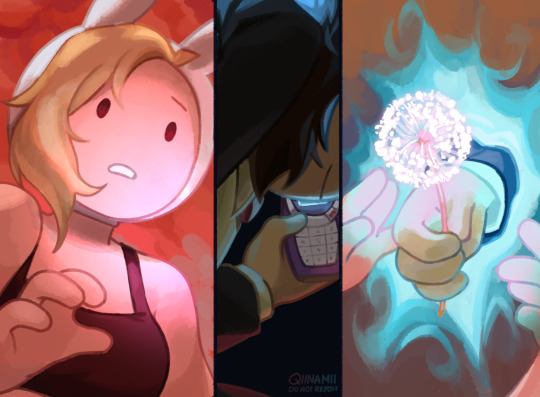
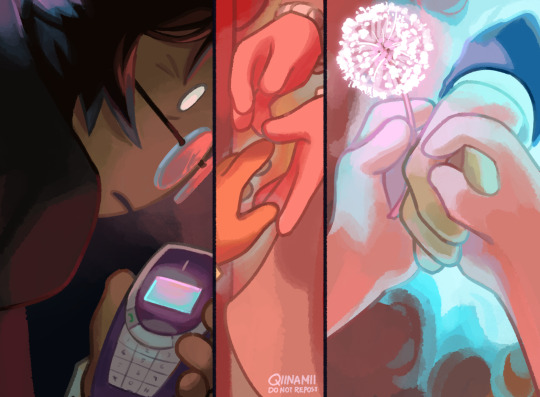

we'll do fine.
#fionna and cake spoilers#what hits me a little is how similar fionna and simon's stories are in the case of finding nuance in their lives#when both have gone through their separate but still valid pain no matter the extent it had been#and its that they met each other they get to see how it compares and they're no less worth of the peace and fun they dreamed of#even in the form of simplicity and just being normal#“i wouldn't have met THE fionna and cake” “we wouldn't have met THE simon petrikov”#it hits me harder that after the dandelion scene would've been their last time seeing each other physically#and how assuring simon sounded when fionna didn't know what to do with the literal world in her hands#tho im sure prismo isnt that much of a rule jerk lol i still drew out the revelation anyway with this tiniest addition#also the fact fionna's world is influenced by simon's thought processes and conditions so now things are a little better for both of them#fionna the human#fionna campbell#simon petrikov#qiiarts#the lil flashback of#betty grof#fionna and cake#adventure time
34K notes
·
View notes
Photo

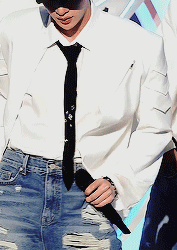




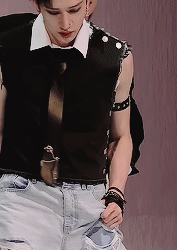
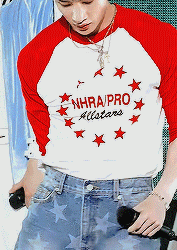

Bang Chan Doing That Move
#chan#bang chan#stray kids#skz#cb97net#createskz#*gifs#*m#flashing tw#i really hate this <3#it did not turn out how i wanted it to but whatever#i honestly like only like....... 5 of these gifs#the other 4 make me wanna cry <3#middle one is a flop but this was the extent of fancams and i had to even steal seungmin's fancam to make the top right lol :sob:#anyway this was inspired by my entire twt tl being clips of this#and so <3#for the stayblrinas... a gift#its ugly but#i wanna stare at him all day oh man#also lets not talk abt how he tugs at his jeans because mgnnnfnjjfjf#1st and 3rd make me want to .#i dont even have words anyway .#enjoy i guess.... even tho i#hate it
8K notes
·
View notes
Text
idk how to say this without sounding really boomer-ey, but like, what happened to horror content for kids? maybe i’m using the word “horror” a little liberally but i remember when i was a kid there was SO much out there that existed solely for the purpose of scaring kids in a safe, fun, age-appropriate way. just off the top of my head there’s goosebumps, scary stories to tell in the dark, tales from the crypt (little before my time though), coraline, mirror mask, monster house, dark crystal (more incidentally scary but w/e), even courage the cowardly dog; all these really fantastic books and shows and movies that let kids explore being scared on their own terms.
now there’s idk, those new addams family movies? but those aren’t really scary.
i see people talking about the “kid-ification” of horror games and i can’t help but wonder if part of the reason kids latch onto that stuff so much now is because there’s nowhere else for them to experience healthy, safe fear. a little kid wants to get the thrill of being scared, but their parents won’t let them watch any actual horror movies, so they go on youtube and what do you know, there’s markiplier playing another cheap horror game set in a toy store or whatever, and now that kid’s fear quota is being met. (obviously there’s more to it than that, but it’s a theory i have)
this like, doesn’t really matter probably but idk, i feel bad that ~kids these days~ aren’t getting the experience of something scary made specifically for them with their genuine enjoyment in mind, rather than whatever the next fnaf ripoff is that just wants to sell them merch. being a kid and watching a well-made scary movie feels like you’re finally being taken seriously; you’re not being babied or coddled, you’re being trusted to face the skeksis and the other mother and the nebbercracker house and not back down. i wish people were still making media that respected kids that much.
#obviously i’m sure there’s still stuff like that being made somewhere#but not nearly to the extent that it used to be#i think about this a lot lol#bucky’s thoughts#coraline#goosebumps#scary stories to tell in the dark#tales from the crypt#mirror mask#monster house#courage the cowardly dog#the dark crystal
13K notes
·
View notes
Text
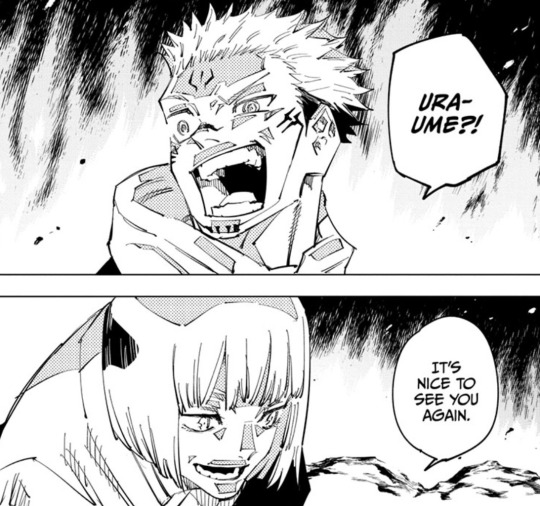
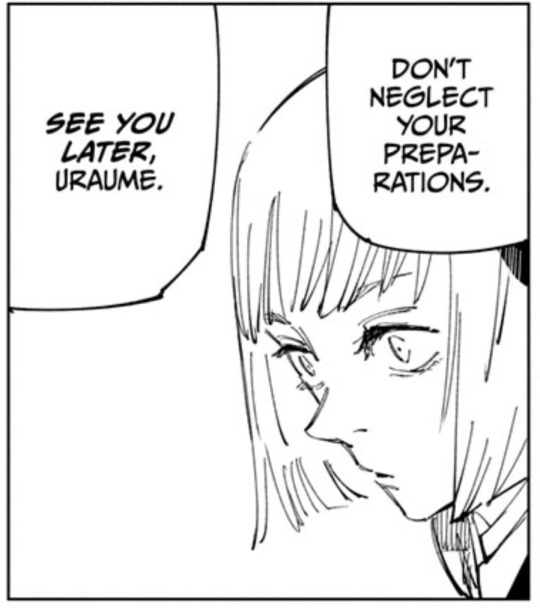
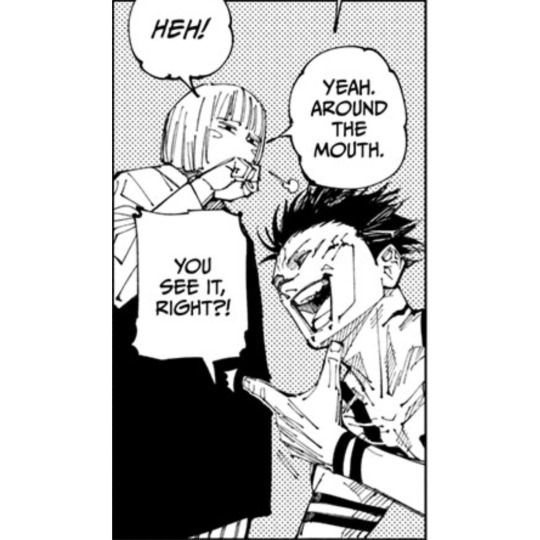
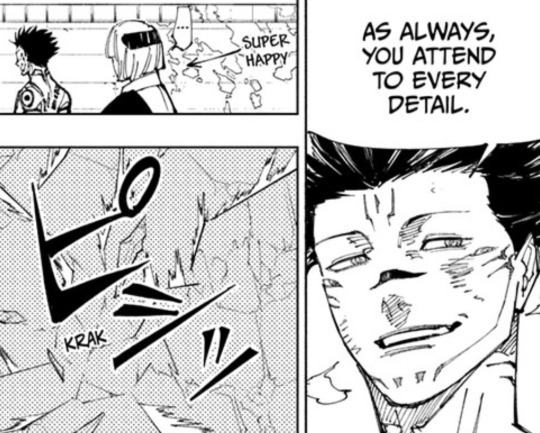


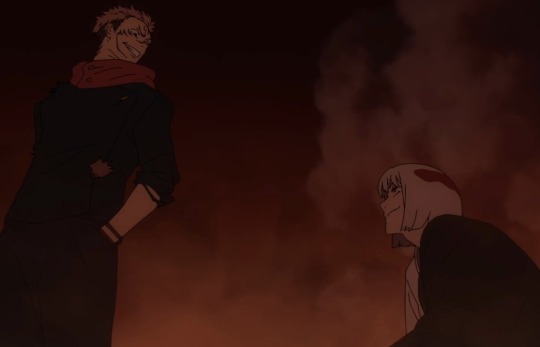
Backstory isn’t out of the picture, but for now, I love that there’s absolutely no reason Sukuna is that friendly with Uraume. As far as we know, they’re just a random sorcerer with ice powers who can cook human meat that Sukuna respects enough to hang out and laugh with. And it’s nice that their relationship doesn’t feel that imbalanced or toxic, despite the huge difference in power and it being sukuna. Good for them
#sukuna and uraume when yorozu said she’d be the one standing next to him instead: 😐#uraume#sukuna#jjk spoilers#back to my occasional uraume posting bc I like them#long post#I do like the manga for the uraume sukuna reunion more BUT I like that they’re both smiling in the anime#jujustu kaisen season 2#id in alt#like idk the full extent of their relationship. but it is funny to me that uraume will be ‘I don’t want sukuna to be disappointed in me’#and Sukuna is always just ‘Uraume! :D’#they get away with doing so much lol#mypost
1K notes
·
View notes
Text
Some hints about evaluating scientific studies
Firstly, understand that something being published in a scientific journal (or an academic journal for the social sciences) does not automatically make it true. Publishers profit from publishing novel, eye-catching, surprising research, which means they are more likely to publish positive results than ones that didn't find a connection between given variables. This means that scientists' careers benefit when they get positive results. Certain institutions also benefit from certain findings above others (a committee for research on "obesity" that is funded by a government organisation tasked with ending it, for example, is likely to try to stretch the evidence to find a link between body weight and poor health outcomes). So how do people evaluate scientific studies, especially without being scientists themselves?
Literature reviews
Literature reviews, which aim to assemble and summarise most of the available or influential papers on a given issue, can be a good place to start when trying to research that issue. Typically, scientific studies shouldn't only be evaluated on a case-by-case basis (since even well-designed studies can be contradicted by other, equally well-designed studies), but a full survey of the different results people have gotten should be taken.
Background information and conflicts of interest
Try to find out who funded a given study. Who published the study? What do these people stand to gain from the results of the study being accepted? (For example: you might pay special attention to the experimental design on a study on whether a certain essential oil helps to reverse hair loss that was carried out by a company that sells that oil.)
In theory, many journals call for study authors to declare any conflicts of interest they may have in a special section of the paper. This section should also list funding sources. You might also look up the authors on linkedin or something to find where they're employed; also look into whether another conglomerate owns that company, &c.
Experimental design
If the study involves a survey, have the authors of the paper provided the questions that people were asked, so that you can evaluate them for potential ambiguity or confusing wording? Not being transparent about the exact wording of questions is a sign that a study isn't trustworthy.
What's the sample size? Is it large enough for the claim the study is making to be reasonable? (More on this in the next section.)
Does the experimental design make sense with what the researchers wanted to study? Are the claims that they make in the conclusion section something that could reasonably be proven or suggested by the experiment that they performed?
Does the experimental design "bake in" an assumption of the truth of its hypothesis? (For example, measuring skeletons to argue that they fall into statistically significant size groupings by sex, using skeletons that you sorted into "male" and "female" groups based on their size, is clearly circular).
How was data collected? People might change their answers to a survey, for example, if they have to speak to a person to give them, rather than writing them down anonymously. Self-reported information (such as a survey aiming to figure out average height or average penis size) is also subject to bias. A good study should be transparent about how the authors collected their data, and be clear about how this could have affected their results.
Also regarding surveys: do the categories that the authors have divided respondents into make sense? Are these categories really mutually exclusive? If respondents were asked to sort themselves into categories (e.g., to select their own race or ethnicity), is there any guarantee that they all interpreted the question / the boundaries of these categories the same way? How would this affect the results?
Interpretation of results
Could anything other than the conclusion that the authors came to explain the results of their experiment? For example, a study finding a correlation between two variables and assuming that this means one variable causes the other ("being in a lot of stress causes short stature" or vise versa) could be missing a secret third thing which is in fact causing both of those things (e.g., poverty). Check to make sure that the authors considered other explanations for their findings and ruled them out (for example, by controlling for other variables such as socioeconomic status).
Are the results of the study generalisable to the population that the authors claim they're generalisable to? For example, the results may not be true for the entire population if only cisgender men between the ages of 30 and 40 were tested. Sampling biases can also affect generalisability—if I surveyed my college to try to find out the percentage of women in the total population, you might ask "but is your college sure to have the same percentage of women as the Earth does?"
Statistics
Are the results statistically significant, or are they within expected margins of error?
Many studies provide a p-value (a number between 0 and 1) for their results. In theory, a p-value represents the chance that the study's results could have been achieved by random chance. If you flip a coin ten times (so, your sample size is 10), it's not very odd to get heads six times and tails four times, and you wouldn't accept that as proof that the coin lands on heads more often than tails. The p-value for that result would be high (that is, there's a high chance that the coin appears unfair only because of random chance). On the other hand, if you flip a coin 100,000 times and it lands on heads 60,000 of those times, that's much better evidence that the coin is not a fair one. The p-value would be much lower. Typically, a p-value lower than 0.05 is considered statistically significant.
In practice, there's more than one way to calculate p-values, and so studies sometimes claim p-values that seem absurdly low. A low p-value is not proof of a claim in and of itself. Check to make sure that the authors of the paper also provide the raw data, and not just the p-values; this indicates a concern with other people being able to independently evaluate their results, rather than just trying to get The Best Numbers.
Citations
If the study cites something that seems foundational to their claims or interpretation, try tracing it back to the paper that was cited. Does the source actually claim what the authors of the first study said it did? Does the source provide proof or support for the claim, or does it seem flimsy, like a "common-sense" assumption?
Replication
Check the studies that cite the one you're currently looking at. Has anyone else tried to replicate the study? What were their results?
What if I really, really don't want to read scientific studies?
That's fine. Not everyone is concerned enough with specific scientific questions for regularly reading scientific papers to be reasonable for them. Just keep in mind that not everything in a scientific journal is necessarily true; that profit motives and personal and institutional bias impact results (e.g. when some studies revealed a lack of poor health outcomes for "obesity," and many scientists responded by calling it a "paradox" that needed to be "solved"); and that pop science and journalistic reporting on science are subject to distortions from the same sources.
Try finding commentators on scientific matters whose output you like, and evaluate their writing the same way you would evaluate any other critical writing.
#feel free to add on!#this doesn’t really incorporate the extent of my cynicism wrt to scientific establishment but. lol#reading comprehension#critical thinking
2K notes
·
View notes
Text
I like how the two discussions I see about AI imagery is like "everything can be art and if you say AI art isn't art you're a gatekeeping loser also fuck copyright" and the other half of it is "these fourteen year old girls got a bunch of pornography generated of them and distributed to their schools and also there's books about food on Amazon that were written by chat GPT that will literally poison and kill you all the way to death if you listen to them"
#its ok to admit that AI generated stuff is crap that sucks its fine#you wont become a disney shill that wants to destroy transformative works by admitting that AI sucks donkey balls#because it does lol#it works for comedy to an extent but thats almost all its good for
1K notes
·
View notes
Text
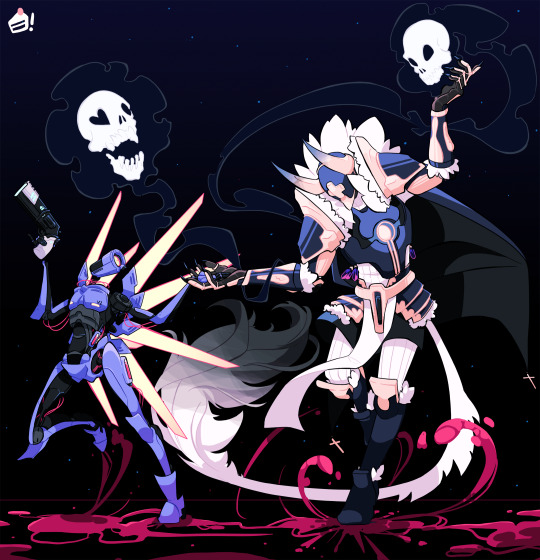
danse macabre
#ultrakill#gabriel#v1#gabv1el#doodle tag#rise and fall au#fallen gabriel#love thinking about gabriel losing his mind for a minute after becoming a full fallen angel#where he just really indulges in his anger and pent up violence all for himself#he rebels against everything he ever was and how stifled he has been his entire achingly long existence#no more rules. no more grace. he's goring demons and tearing machines apart limb from limb#needless to say. v1 is NO moderating force lol#it loves running around like this with him far more reckless than it could afford to be before#and finding a love that engages in its cruelty with it to its full extent makes it just as bad#he does eventually come back to himself as this just isn't him#but i love them having a full villain era where they become actively avoided#(but hell won't let their prey get away...sad!)
1K notes
·
View notes
Text
ds9-adjacent poll
#p#ds9#<- main tagging just bc otherwise it'll get like 30 votes lol#curious partly bc it's my impression that root beer is v much a usamerican thing idk to what extent its available everywhere else
337 notes
·
View notes
Text
the topic is Trapper and the army as foils, you have three hours, go
In no small part the satire of Mash, particularly in the first half of the show, is tied up with gender performance.
The army represents traditional, stifling and violent masculinity. This is shown through everything from freudian jokes about guns (eg Frank and Margaret's flirtations in The Sniper or The Gun), to Margaret trying to cajole Hawkeye into performing a more traditional standard of masculinity while treating him like a soldier in Comrades in Arms Part 2, to many jokes and comments about (usually) Hawkeye not being a real man in contrast to army standards and various specific army personnel (eg Lyle in Springtime, Flagg in White Gold), to Frank and Margaret's worship of the masculinity of the army ("He's twice the man you'll ever be," re: Flagg and Hawkeye, Margaret's lust for MacArthur, Frank pursuing the sniper in The Sniper in an attempt to be a "real man" in Margaret's eyes, etc) to many jokes positioning the military as a sexually aggressive man pursuing Hawkeye ("Sure, the sun the moon the stars, your high school letterman jacket. Same deal I promised nurse Baker." "A receipt please, and promise you'll go out with other doctors," etc.)
In contrast, the main characters all fail to perform traditional gender in some way, from crossdressing to immaturity to indecisiveness to peacefulness to Margaret's masculinity and Frank's pathetic failure to live up to his own masculine ideals, to just about everything about Hawkeye. His cowardliness, his jokes about not being a real man, his jokes about taking the feminine role in sexual encounters with men and women, even multiple double entendres about his average at best penis size.
Trapper is the most traditionally masculine of the main cast. He still subverts masculinity in some subtle ways here and there, such as the occasional feminizing joke and mentions of not being in great shape, but overall he's the more butch counterpart to Hawkeye's fem. He plays the role of boxer while Hawkeye plays the role of diva in their respective manager/star roleplaying episodes. He's broader and buffer and plays football, often seen playing catch with someone while walking around the compound, while Hawkeye disdains sports and doesn't participate. He reads Field and Stream which Hawkeye derides in Alcoholics Unanimous while making a wry comment about shaving his armpits. A past lover nicknamed him Big John.
And there are many, many jokes about Hawkeye and Trapper being sexual partners. The recurring Uncle Trapper and Aunt Hawkeye gag, if my father sees this you'll have to marry me, for me? only if you put those on, your father and I will tell you what we did to have you, that's when I fell in love with him, etc etc etc. It's constant. In these jokes Hawkeye usually takes the feminine role, though not strictly every time ("Me and the missus," is one exception in As You Were, the dance in Yankee Doodle Doctor is another).
Trapper's masculinity is differentiated from traditional military masculinity in a few ways. Most obviously, Trapper abhors the military's violence. He never uses guns and mocks Frank's obsession with them, he's a healer rather than a soldier, and he's disgusted by the results of military violence on the men on his operating table.
He's also secure in himself. The military's brand of masculinity is strongly characterized by insecurity and overcompensation. Frank is the main representative of this military insecurity - a coward who insists he's brave (The Army Navy Game), a man who clings to a phallic gun to compensate for his sexual and gendered inadequacies (a main theme of The Sniper, perfectly mirrored when the army itself comes in with a vastly disproprotionately powerful automatic machine gun on a helicopter to shoot down one sixteen year old), a homophobe repressing his own attraction to men (As You Were, the original script of George), etc. We also see this in Flagg, who implicitly sublimates sexual urges into violence (seen when he suggestively caresses his gun while describing how he wants to torture a boy in Officer of the Day).
Trapper doesn't need to overcompensate. He's well-endowed physically, he's portrayed as a competent and considerate lover, he's a brave man who doesn't mind being seen as a coward, and he may or may not be attracted to men but either way he's not a homophobe (George) and he doesn't express his sexuality through violence. When Margaret proves herself stronger than him, his response is to be impressed rather than offended (Bombed). When he dances with Hawkeye for a gag, he doesn't mind letting Hawkeye lead.
He's also differentiated in terms of tradition, with the mliitary representing a more propagandic 50s traditionalism, and Trapper representing a 70s, countercultural freedom from tradition. We see this in the way Trapper has plenty of sex despite being married, while adultery is a court-martial offense in the military. It's notable that he's open and carefree about it, while Frank and Margaret are surreptitious and hypocritical in their affair. This lack of traditionalism is also shown in his disrespect for authority, often in direct contrast to Frank and Margaret's worship of it, and his allyship to George who the military would persecute for his sexuality.
So ultimately we can see that while Trapper and the military are both examples of masculine performance, Trapper's masculinity differs from the military's in being more flexible, less violent, less traditional, and more secure. The military's masculinity is far more toxic than Trapper's, particularly in the context of 70s counterculture media, which aligns womanizing with sexual liberation rather than a lack of respect for women, accurately or not.
This contributes to their respective dynamics with Hawkeye.
Hawkeye, we've established, is usually more feminine, and there are a myriad of jokes characterizing Trapper as his sexual partner, as well as the military as a sexual pursuer.
The jokes Hawkeye and Trapper make about their relationship tend towards cozy domesticity. They're Radar's "aunt and uncle," they directly roleplay marriage ("Martha, we're going to have to move, the people upstairs are impossible,") and less directly behave as though married (the bickering in Alcoholics Unanimous, the discussion about naming their pony in Life With Father). Occasionally they're treated as a healthy couple in contrast to Frank and Margaret's toxicity ("While I'm gone, promise you'll go out with other doctors," vs "Touch anyone else and I'll cut off your hands" in Aid Station).
In some instances the jokes lean towards predatory - "If you're trying to get me drunk, it'll work," or "Who is this man in bed with me?" "I followed you home from the movies," but they're always playful, always fond. If Hawkeye takes on a submissive or victimized role in these jokes, it's one he has fun with and discards just as easily in the context of the rest of his relationship with Trapper.
So, it's important to note that Hawkeye and Trapper support each other and look after each other in an equal, enthusiastic friendship. From Trapper ensuring Hawkeye gets to sleep in Doctor Pierce and Mr. Hyde, to Hawkeye supporting Trapper when he wants to adopt a child, to Trapper right at Hawkeye's side as they attempt to procure an incubator, they are there for each other every step of the way. If their relationship is a marriage in some ways, it's a healthy, strong, and non-traditional marriage, an equal and open partnership free of jealousy and insecurities.
Compare that to the military's relationship with Hawkeye. In jokes it's characterized as powerful and predatory, far from an equal partnership. Sometimes it approaches positive - in Carry on Hawkeye, much of the humour is derived from Hawkeye and Margaret's gendered role reversal as she assumes military command of the unit. Hawkeye playfully calls her sir, seductively lies on her desk like a secretary in a porn film, and most notably treats an immunization shot as sexual penetration in a prolonged gag about sexual role reversal. Hawkeye has fun playing a sexually submissive role to a representative of military authority in this episode, but it is a submissive role.
Several of the one-off jokes have a similar sensibility, such as the double entendre of "My bellybutton's been puckering and unpuckering all day," in response to a representative of MacArthur assuming their excitement over the general's arrival to the unit, or Hawkeye's "Okay, take me, I'm yours," to Colonel Flagg. They demonstrate a willingness to play the receptive role on Hawkeye's part, but they also, pointedly, disturb the object of the jokes.
When Hawkeye makes these jokes that sexualize military authority, he's attempting to be provocative as well as defiantly drawing disruptive attention to his own powerlessness as a drafted surgeon. The power dynamic between Hawkeye and the authority of the military only goes one way, and Hawkeye gets a kick out of pointing it out in ways that perturb the representatives of that authority, but it's a power dynamic that takes its toll on him.
Many of Mash's plotlines revolve around Hawkeye rebelling and attempting to seize some scrap of agency back from the military. Adam's Ribs, for example, in which he starts a mild riot over the food he's being fed and spends the episode attempting to procure barbecue ribs from Chicago (which Trapper procures for him), or Back Pay where he tries to charge the military for his forced labour. A particularly notable example is Some 38th Parallels, in which Hawkeye complains about being paid the equivalent of a nickel per operation, and his frustration manifests in impotency until he can perform a gesture of rebellion against the military.
One unfortunate consistency of these episodes is that the army ultimately retains its power. When Hawkeye achieves his goals, it's only in small ways that do little more than satisfy his own need to assert his sense of self. Often, Hawkeye doesn't achieve his goal at all, but is thwarted by the army, such as in For Want of a Boot. In every instance he remains powerless in comparison to the authority of the military.
So the context in which Hawkeye makes these sexualized jokes about the military literally fucking him is one of abject helplessness. In a sense, all he's capable of is pointing out what the military is doing and putting it in his own, audacious terms. He's not capable of preventing it. His jokes usually have an edge of bitterness to them in delivery, and when they don't, that tone is imparted anyway by the greater context.
With Trapper, Hawkeye can play-act a marriage or an assault, but in either case he's an enthusiastically consenting, equal partner. Trapper's performance of masculinity allows for Hawkeye to take any role from victim to wife to husband, and enables Trapper to respond in kind from a position of equality and respect. The military, in its insecure, domineering performance of masculinity, is a dictatorial authority, never allowing Hawkeye perform any role but a feminized, victimized one, and only ever giving him the choice of whether to perform with a wry smile or a sneer.
In short, Trapper is the cool, considerate service top to the military's insecure domineering boyfriend.
I'm tagging everyone who enabled this lol, share the blame. @beansterpie @majorbaby @professormcguire @rescue-ram
#mash#this was dumb but writing it was somehow cathartic for me lol#i should've done this with frank and hawkeye as foils wrt subverting masculinity bc i think that would've been much easier#but i got caught up in this honestly. it's incredibly fun to write this kind of shit#maybe i'll post a round 2 sometime#marley on mash#ship ht#mash gs#and like... it's a little bit parodic but also sincere to an extent lol. this is absolutely one way of reading all the freudian#undercurrents in the show. it's definitely silly to contrast trapper and the military to make a point about how the show depicts#masculinity especially for like 1800 words lmao but it's a very fun angle#trapper mash#hawkeye mash#long post
341 notes
·
View notes
Text
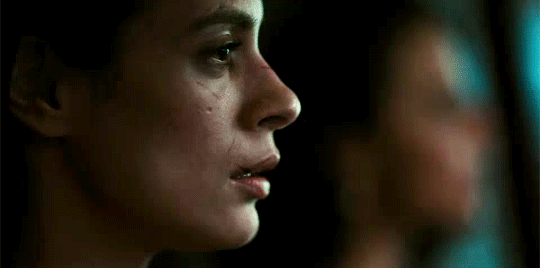
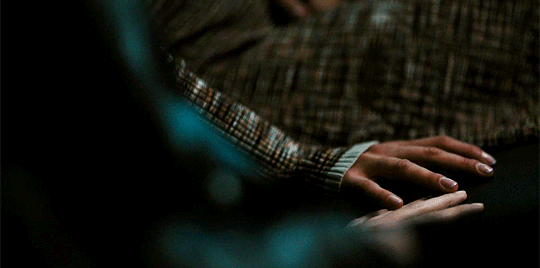
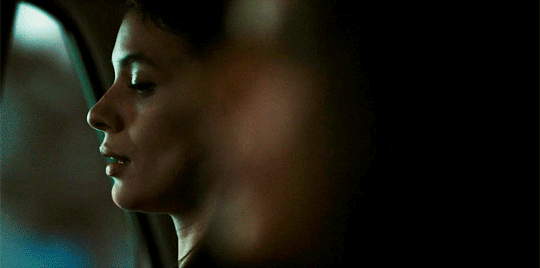
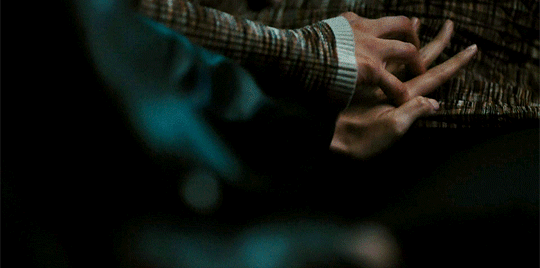
Special Ops: Lioness - 1x07
#specialopslionessedit#special ops lioness#special ops: lioness#aaliyah amrohi#cruz manuelos#stephanie nur#laysla de oliveira#special ops lioness 1x07#aaliyah x cruz#femslash related stuff#muslim lgbt#oh#okay first lol in the preview I thought that'd be the extent of it#like leaving it at linked pinkies or something#I guess I also thought it was after they hooked up#but the fact that it's in BETWEEN?#two scenes in which they tried to?#hottt#it all is hot#and like yeah the kind of show it is and the target audience#model looking ladies in their lingerie hooking up evokes a certain image#but at the same time...I like that they want each other so much#I remember using the word ''wanting'' to begin with during the facetime convo#I like that along with the emotional connection they can be physically into each other#and very much are!#even as they have these moments like when all the girls were getting ready in front of a mirror#or here where cruz has to pull her hair out from under her collar#they're so...women#you know?#I don't know I should sleep
760 notes
·
View notes
Text
Malleus having older sibling trauma. Malleus resenting how Lilia is able to openly express being Silver's parent but had to keep Malleus at arms length because of their roles. Malleus having to know someone who was presumably initially very cold and softened only as he was growing older while Silver had a very openly loving father immediately. Malleus being the child who taught Lilia how to parent and love. Malleus never feeling like Lilia truly loved him after seeing how he was able to love Silver. Malleus loving Silver because they're brothers and at the same time resenting him for having the father he always wanted.
#twst#twisted wonderland#twst spoilers#am I projecting? yeah definitely#but honestly I feel like it could be really interesting in relationship to how Silver and Malleus perceive each other#what I hate is when people make Malleus ridiculously jealous of Silver though#like do I think Malleus resents the relationship between Silver and Lilia to an extent?#DEFINITELY! But again TO AN EXTENT#Malleus isn't going to hate Silver for this lol he knows that doesn't make sense#he still loves his brother yk#but yeah Malleus not being able to openly experience love and then Silver receiving allat has got to sting#his role as prince determines he will always be held at a distance from his world and that's best conveyed thru his relationships with dias#especially as a child with lilia#anyways I also dislike Maleficia and the BV senate because it's definitely their fault such roles even exist between Malle and everyone#okay that's. ramble done.#twst malleus#malleus draconia#twst silver#lilia vanrouge#twst lilia
587 notes
·
View notes
Text

Skrunkly nugget Raditz.
#lol i literally drew 1 PANEL of nanny nappa and kid raditz and vegeta#for a gd comm!!#and suddenly i wanna draw this now :///#if i do draw em these kids are gettin bangs#only 1 with a dramatically receding hairline gonna be nappa#i shooouuulllddd probably also use the wrist guard bracer things from the bardock special :/#that dont extent to cover the hand or have the thumb loop or rope lookin bit#...or imma take some liberties cause i like those things >:T#aayy but i can atleast draw the old style scouters on em when their pre - immediately post planet explosion >:]#i love the big stupid button on bardocks scouter and even vegeta was still using that style at that time so the new once mustv not been out#p sure even freeza was
328 notes
·
View notes
Text
was thinking about takeshi and how he's my favorite brand of unconditional devotion btw. the utter and absolute and all-consuming kind that runs so deep to the very core and is so intrinsic and fundamental to it, it can only express itself in the most casual and natural and certain way. without second thoughts, without any room for doubts or for any moral dilemma to be had over it, because of course he ought to always be breathing and living for his chosen person first and foremost. of course he ought to hang on their every word and make them true no matter what, no matter what he has to do to make it happen, no matter what he has to do to other people to make it happen, and no matter what it might turn him into in the process. because it's obviously the way the world should be for his chosen person. at their feet, ready to bend over backwards and break and build itself again to better answer to all their needs even if they don't ask it for it. it's the only right way it should be for them, and of course takeshi's going to do his utmost at all times to make it a reality as much as possible.
and his devotion comes out as naturally as breathing, comes out lighthearted and nonchalant like he might as well be talking about the weather, but it's not unaware of itself. it's not that takeshi doesn't know it's unhealthy and wrong and that he's willing to go entirely too far in its name for anyone's good. it's not that he wouldn't hear you out if you were to sit him down and explain to him just why he needs to tone it down a little (a lot). logically, he'd agree with you and know you're right. and then he'd tell you he's still not going to do anything whatsoever about it. that he's not bothered by it and doesn't feel the need to change anything to his attitude. makes it a point to never let anyone or anything sway him even an inch in the stand he took when it comes to that, no matter how many thousand of times you might go over the subject with him.
because the morality of his devotion isn't the point at all. is entirely irrelevant to it and doesn't affect the way he expresses it all. it's not the metric with which he draws a line in the sand to hold it accountable to. because the thing is, takeshi's entire world revolves around tsuna--tsuna is his entire world altogether, and it's just a matter of fact, that simple. to him it's a truth as unchanging as the sky being blue, and so being the way he is according to that truth is the only way he can imagine being that'd feel right to him. and so the actual and only metric that matters here is "would tsuna be happier if i were to do this?" and/or "is this something tsuna needs me to do?"
and like. i don't think takeshi ever stops being a kind person capable of compassion and understanding and mercy and forgiveness even ten years later once they became mafia through and through. and i don't think either he grows up to be feared and called a monster per se despite the things they inevitably had to do during those ten years (and the things they'll inevitably keep having to do as long as they keep being mafia), at least not in the way, for example, they'll never stop fearing and calling mukuro one. but i do think that among the tenth gen, he ends up being the one with the most ruthless, merciless and horrific blood on his hands of that particular and distinct loving kind. you know the one i mean, right? he comes to be the one most expected and the one first expected to be willing and to take it upon himself to go through with it when the need arises. and to think little of it after, if anything at all. all in the name of making tsuna's reign as easy on him as possible.
and it's to the point where it's the kind of blood that makes even mukuro pause at times. or, when takeshi is the one coming up with solutions himself during meetings, makes even reborn blink. not because it's unjustified or wouldn't be safe or efficient or anything of the sort, but because it is unwarrantedly thorough in its retaliation. and sometimes, at times like this, he's the one tsuna needs to step in for the most, because he's the only one who can reason with him that "yes, this would work in getting rid of our problem" but "no, please, don't do that takeshi". because if tsuna is the only thing that infers on just how much and in what ways he'll let himself be devoted to him, then of course, he's also the only one takeshi's willing to reign himself in for without second thoughts. because he'd hate to ever do something tsuna would disapprove of or wouldn't want him to do. or do something that'd make tsuna see him differently or love him back less even in the slightest.
and it's also like. his devotion isn't an undisciplined one. it's not one he doesn't have control over, the very opposite. it's a very purposeful and conscious choice he chooses to keep making over and over again every step of the way, and he taught himself to have control over it, to know when it's needed and/or wanted, and how much and in which ways it is when it happens, and to keep it down otherwise. and, yes, to also reign it back in at tsuna's request at times when it still slips past his control. because it's all about making tsuna's happiness easier and secure and long-lasting, and never about burdening him with just how committed he is to do that.
so it comes down to this: takeshi willing to go above and beyond and more for tsuna unless tsuna explicitly asks him not to. and to tsuna needing to ask him not to every now and then. and to other people pointing out to him how too many times tsuna's already needed to stop him, and that maybe there's a hint for him to take there. and to takeshi seeing the hint, looking it straight in the eye and recognizing it for what it is and just. deciding it doesn't apply to him because it's all perfectly normal behavior to him. because it's the only kind of behavior that makes sense to him and feels right.
and so—to circle back to my first point—he can only express his devotion as naturally as breathing, so casually, almost like it's something inconsequential and not worth talking about despite how unmistakably it couldn't be further away from being the truth. it's the only way he could have always known how to express it, because, after all, who has ever taken time to ponder about the details and the hows of the way they breathe?
and i, for one, absolutely eat that shit up every time, thanks for coming to my ted talk <3
#katekyo hitman reborn#khr#khr meta#can i even call this one?? well i'm going to anyway lol#yamamoto takeshi#sawada tsunayoshi#i've never been normal about devotion in stories and characters and won't ever be so sorry if this doesn't make sense#also this is not to say the 10th gen loves tsuna any less unconditionally this isn't a competition#it's just me saying the particularities and specificities of the way takeshi specifically does it appeal to me the most#which is one of the reasons why i have such a big soft spot for 8027#and it's not a problem in their relationship either btw that's also not what i'm saying#like tsuna doesn't mind it and absolutely /does/ reciprocate it 100%#he's just careful to keep an eye out so none of them will lose themselves along the way#also this is within the context of me shifting canon slightly to the left in the way where the 10th gen loves tsuna /so much/#they could just as well actually and properly worship him as a god and it still wouldn't make a single difference#and me liking to lean into that fully and taking it to extremes and it inevitably becoming some extent of dark#because considering the environment canon makes them express it (the mafia) it's like. well how else are they meant to keep it alive#and make sure it survives through it without giving it sharp teeth and claws and jagged edges of its own you know?#so if you feel like this is some kind of ooc-ness you're not wrong#but also consider: i'm not wrong either <3#anyway consider also: unconditional devotion running /so/ deep down to your marrow and to your very essence#even in the face of the whole world telling you how wrong it is and how insane and unhinged you are for it and condemning you for it#it still wouldn't so much as make you consider the thought they might have a point#and i genuinely EAT that shit up every time i love to see it <3
312 notes
·
View notes
Text
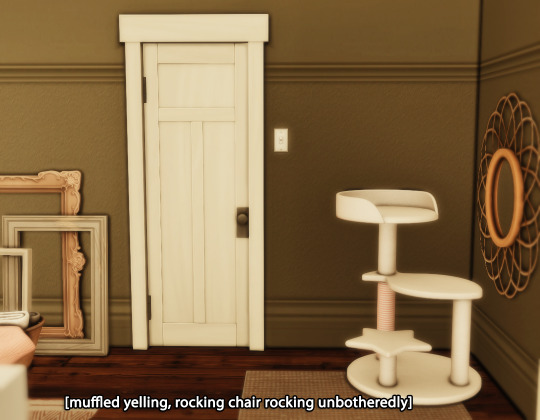


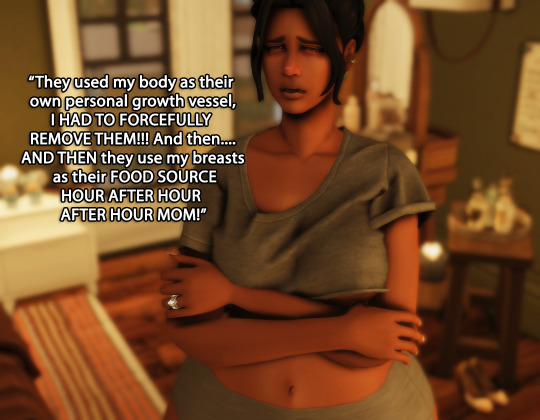


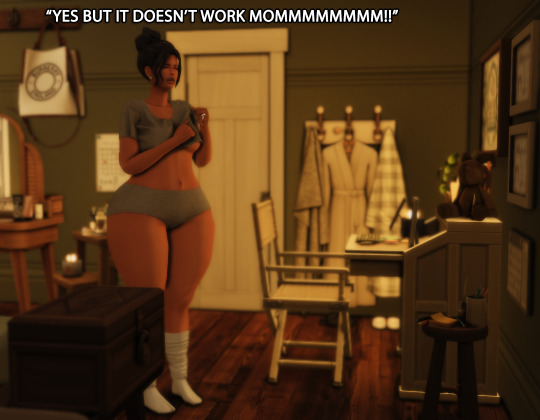
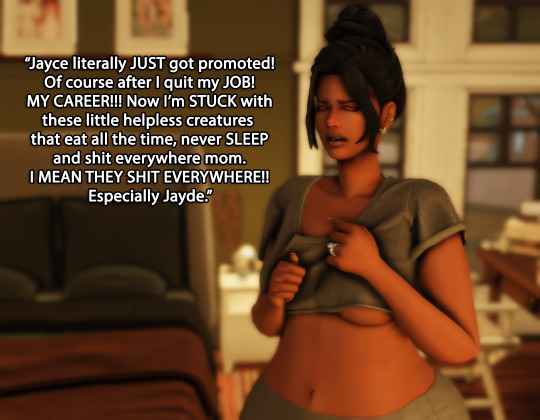
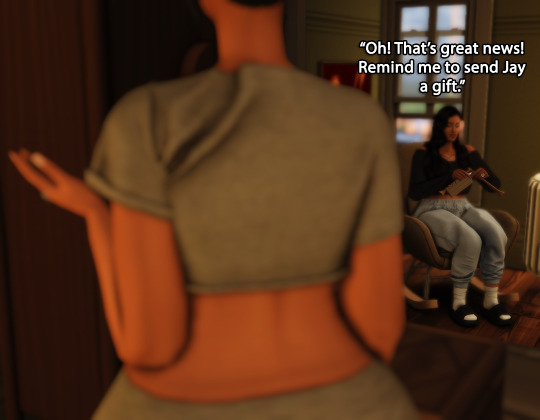
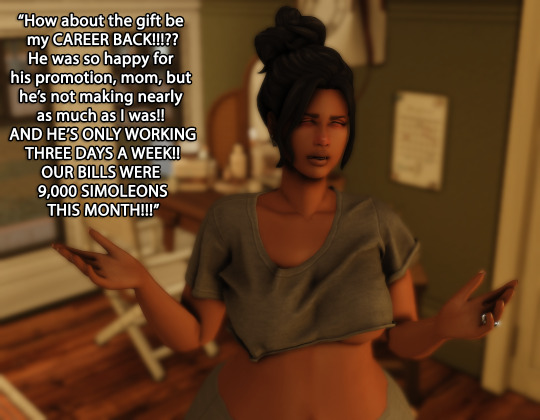

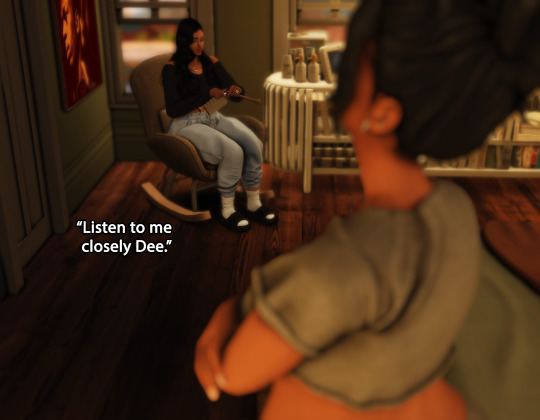



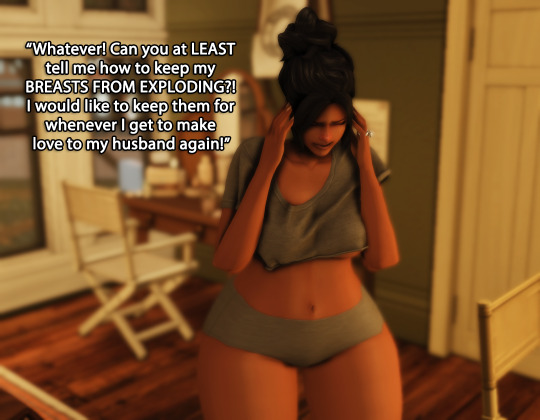
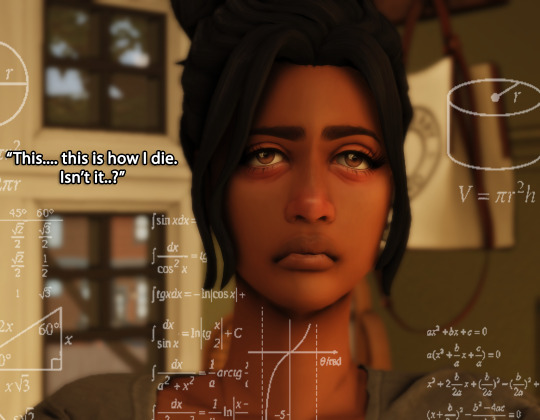

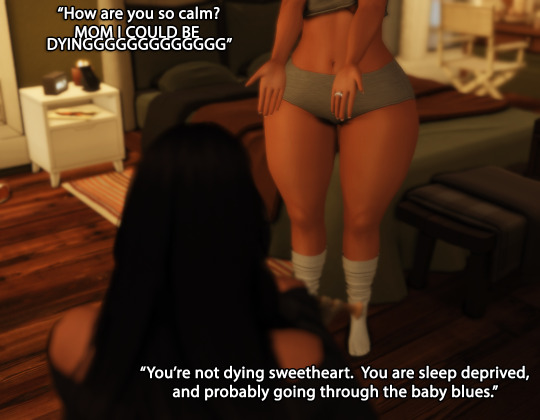

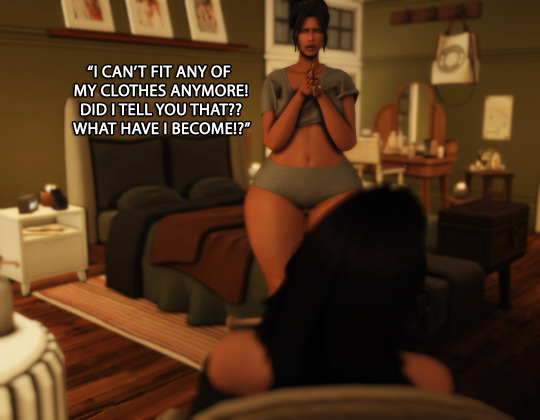
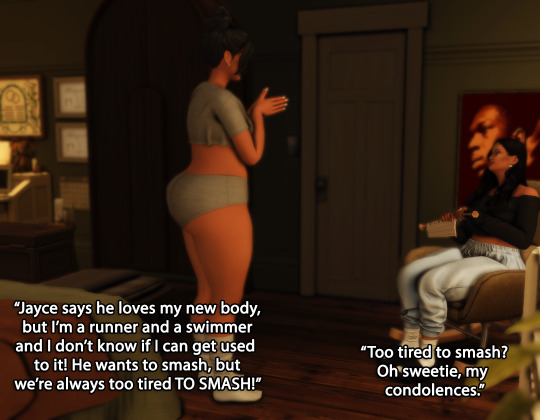
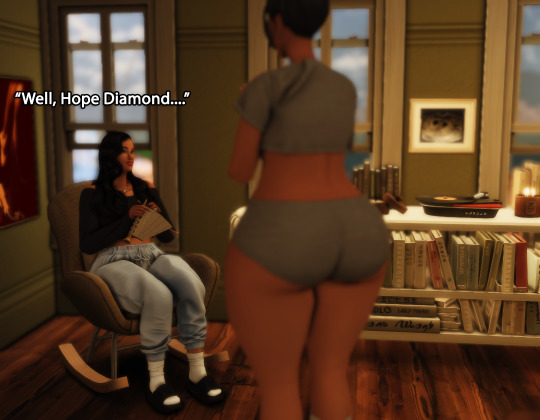

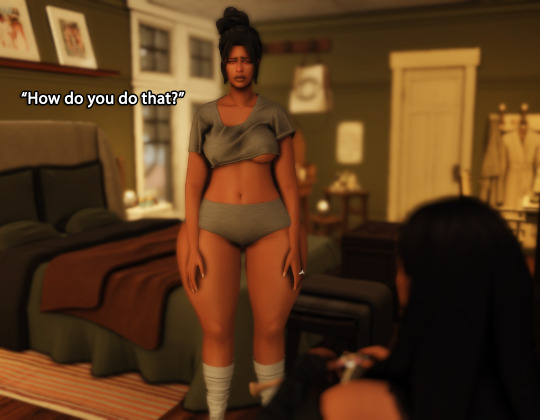
Queen mothers save the day | Next
#ts4#indya#black simblr#LMFAOOOOO#LISTEN TO YO MOMMA!#and then go the fuck to sleep#we all know Hope is a bit insecure but if this is the extent of her PPD we'll take it#Indya stay solving the big problems lol#double update!#ts4 story#sims 4#sims 4 story#simblr#ch23
330 notes
·
View notes